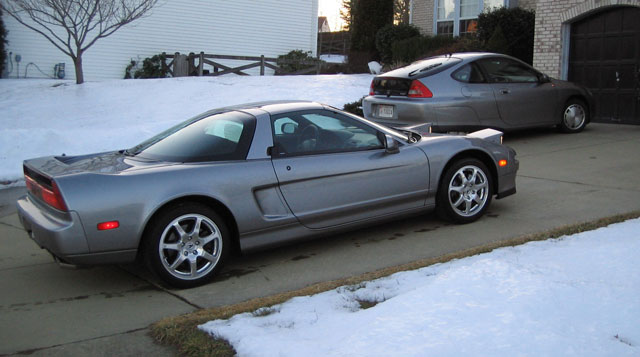nsxtasy[/i]
[B]However said:
Or, the owners are different. 
I have used the scientific method to prove my above statement; it is based on actual test results, holding the driver/owner variable constant, while changing the car/engine variable.

Oh, and I should mention that conducting this experiment - particularly the racetrack portions - was a lot of fun.


Originally posted by speedyizzy
So long story short.....it high reving will shorten the life of a engine, but if the fluids are maintained; the impact would not be so significant....right?
I wouldn't put it that way. Fluids don't have much to do with it; you need to maintain the proper fluid levels regardless of whether you are using the upper end of the revband or not (and if you don't, you could have big problems even if you aren't revving all that high).
Here's how I think of it. Let's say that each engine rev is a measure of how much wear and tear the engine experiences. The question becomes:
"How much of the time are you really driving in those upper revs?" I really doubt that most people are driving all their miles in commuting or in long-distance driving in the upper end of the revband (going down the highway at 75 mph in second gear, for example).
So how much of the time do you do it? Let's say that when you are using the upper end of the revband, you are turning the engine three times faster, on average, than when you are not. If you take a 30-mile drive on a twisting road, and drive the car in the lowest gear possible, that means it might have the equivalent engine wear of 90 miles of highway cruising in fifth. But does anyone really use the lowest gears (high revs) all the time, for tens of thousands of miles? I doubt it.
Let's take my own car as an example. I use it mostly for track events, so my engine wear is probably greater than those who don't. I also drive my NSX to and from the track. I've driven my NSX in roughly sixty track events. It has 8717 actual track miles on it, out of 53,647 total miles. Let's assume that almost all of those track miles are in the lowest gear possible (without exceeding redline) at all times, and that almost all of the other miles are in the highest gear possible (without lugging the engine) at all times. (Both are reasonable assumptions, and mostly if not entirely true.) Then the actual track miles count as three times the engine wear of street and highway miles, and my car has the equivalent engine wear of a car that has 71,081 of only street and highway miles, with no high revving. As you can see from this example, even a car that is heavily used primarily on the racetrack may have the equivalent of less than 20,000 additional miles of wear on the engine. And an NSX engine can easily last for ten times that number of miles.
I really doubt that anyone out there has an NSX that has been driven, say, 50K or 100K miles at high revs.
So long story short.....high revving may shorten the life of a engine, but not enough to worry about. So feel free to do it whenever you want the extra acceleration, and enjoy it when you do.





